Join us for the 2016 River Stewardship Gala on March 10th at Mile High Station, in Denver. CTU members, supporters, and partners gather together to celebrate rivers and trout.
Registration for the event is $100 a ticket and includes a reception with complimentary beer and wine, hors d'oeuvres, and a buffet dinner. The evening will include a silent auction for a chance to win great fishing packages, flies and gear and for the non-anglers, there are great cultural packages for nights out on-the-town.
Continue reading for a description of some of the great packages offered! More packages and prizes will continue to be added so please keep checking back.
Click here to register for the event!
This year we also proud to recognize our 2016 honoree, Denver Water, for their advances in water conservation and watershed stewardship their leadership in advancing water efficiency. They have also worked with conservation groups to improve conditions on the Colorado River through the "Learning by Doing" partnership. Twenty five years after the Two Forks veto, Denver Water is now working with former adversaries as partners on river stewardship.
Featured Trip: Kenai River Trip
Thanks to Tightlines Alaska and owner/guide Collin Papuga - an alumni of CTU's Youth River Conservation & Fly Fishing Camp - up to four anglers will have the chance to enjoy a guided full day float trip to fish the Upper or Middle Kenai River. The package includes guide, rods and reels if needed, flies, and transportation to the launch site. The Upper Kenai River runs 17 miles long and is limited to drift boats as it flows through the Kenai National Widlife Refuge. The fishing pressure is minimal on this stretch of water and anglers for fish for rainbows, dolly varden, silver salmon, and sockeye salmon. The Middle Kenai River has more fishing pressure, however it's known for monster trout and dolly varden and is an anglers best shot at hooking a 30" trout! The package is valued at $1,000 and bidding will open at $600 at the Gala!
Featured Nonfishing Trip: Classical Music River Journey
 Merging the arts with adventure, Bill Dvorak - Colorado's first rafting outfitter and a fifth-generation cousin of the famed composer - takes river enthuiasts with an "ear" on a once-in-a-lifetime journey down the Green River's spectacular Desolation and Gray canyons. The winning bidder will enjoy an eight day float (July 23-30) along with four to five members of the Los Angeles Philharmonic as they embrace the take in the majesty of the canyons and works of Bach, Beethoven, and many more. During the course of the float, guests will be able to listen to concerts performed in the slickrock canyons and open air nestled along Pondersoda pine and Douglas fir. The trip is a perfect chance to take in Utah's spectacular canyon scenery, read, relax, view wildlife, and listen to impromptu musical performances. The package includes rafting equipment, airfare from Grand Junction to the launch and van shuttle back from the takeout, and gourmet meals provided each day. "The trip is pampered, if not the most memorable sophisticated adventure you ever take," said Dvorak. The price per person is $2,410; we will be offering passage for one guest with the bidding opening at just $1200.
Merging the arts with adventure, Bill Dvorak - Colorado's first rafting outfitter and a fifth-generation cousin of the famed composer - takes river enthuiasts with an "ear" on a once-in-a-lifetime journey down the Green River's spectacular Desolation and Gray canyons. The winning bidder will enjoy an eight day float (July 23-30) along with four to five members of the Los Angeles Philharmonic as they embrace the take in the majesty of the canyons and works of Bach, Beethoven, and many more. During the course of the float, guests will be able to listen to concerts performed in the slickrock canyons and open air nestled along Pondersoda pine and Douglas fir. The trip is a perfect chance to take in Utah's spectacular canyon scenery, read, relax, view wildlife, and listen to impromptu musical performances. The package includes rafting equipment, airfare from Grand Junction to the launch and van shuttle back from the takeout, and gourmet meals provided each day. "The trip is pampered, if not the most memorable sophisticated adventure you ever take," said Dvorak. The price per person is $2,410; we will be offering passage for one guest with the bidding opening at just $1200.
Featured Trip: Madison Valley Ranch
The winner of the Madison Valley Ranch fishing package will enjoy a two night stay (including gourmet meals) at the ranch near Ennis, Montana, and two days of guided fishing - one day with MVR's guides on the Madison, and the second guided by Dave Kumlien (former owner of Montana Troutfitters) on the Madison or Yellowstone River. The package is for two anglers who will enjoy world-class fishing for rainbows, browns, cutthroats, and even native Montana whitefish. The lodge was endorsed as the 2015 Fly Fishing Lodge of the Year by Orvis and has luxury accommodations and amenities including a hot tub, satellite TV, and gourmet cuisine. The ranch is also home to a stocked pond where anglers can hone in their skills and fish for Kamloop Rainbows. The package retails for over $3000, and we will open bidding at the Gala at $1500.
Featured Gear: Fishpond Oxbow Chest/Backpack
 New to to Fishpond's 2016 line, the Oxbow Chest/Backpack features a backpack with removable Savage Creek chest pack. The Oxbow combo item has padded and contoured back support to carry heavier loads and back air mesh to keep you cool while hiking or on the water. The pack includes two zip, out rod tube holders, D-ring attachment for a net and a compartment for a water bladder. The item is retailed at $190 but will be available at our silent auction starting at $100.
New to to Fishpond's 2016 line, the Oxbow Chest/Backpack features a backpack with removable Savage Creek chest pack. The Oxbow combo item has padded and contoured back support to carry heavier loads and back air mesh to keep you cool while hiking or on the water. The pack includes two zip, out rod tube holders, D-ring attachment for a net and a compartment for a water bladder. The item is retailed at $190 but will be available at our silent auction starting at $100.
Featured Trip: Labrador Brook Trout Adventure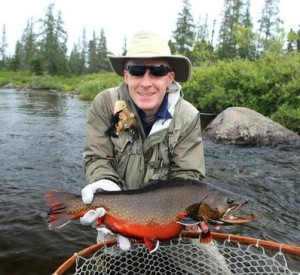
Enjoy a week-long fishing trip to Labrador, Canada for two anglers courtesy of Three Rivers Lodge. The package includes world-class fishing in the pristine Labrador Wilderness Area as well as accomodations in a private cabin and all meals. This wilderness adventure will take you into boreal forest, tundra and seemingly endless waters - all pure and unsullied. The Woods River system features over 100 miles of outstanding fishing opportunites for trophy Brook Trout, Northern Pike, and Lake Trout. The vast area is also home to black bears, bald eagles, and osprey. The package includes six fishing days and seven nights the Three Rivers Lodge's main camp fishing the Eagle River, Rick's Run and Victoria River upstream and the main Woods River downstream. The package also includes two fly-outs on the river system for each angler. This package is valued at nearly $12,000; the bidding will open at $7,000.
Featured Trip: the Spectacular Gunnison Gorge
 Thanks to the folks at RIGS Adventure Company, we are featuring one of Colorado's signature fishing experiences: a Gunnison Gorge Wilderness Float for two anglers. With this package, you and a guest will experience a 3-day, 2-night guided float down the Gunnison River through the Black Canyon- a stretch of water that is featured in Chris Santella's 50 Places to Fish Before You Die and one of Colorado's true don't-miss Gold Medal fly fishing desintations. Along with the world class fishing, the winner of this item will enjoy spectacular views, wildlife encounters, and a first-rate guide to help you make the most of your experience. You'll start with a moderately strenuous hike into the Gorge then enjoy three days floating through a spectacular, unspoiled canyon wilderness fishing for large, feisty trout. The package includes meals, group camping equipment and cot, and transportation to and from the river, and is valid for dates in May or September 2016. The package is worth over $5,500; at the Gala, the starting bid will be $3,500.
Thanks to the folks at RIGS Adventure Company, we are featuring one of Colorado's signature fishing experiences: a Gunnison Gorge Wilderness Float for two anglers. With this package, you and a guest will experience a 3-day, 2-night guided float down the Gunnison River through the Black Canyon- a stretch of water that is featured in Chris Santella's 50 Places to Fish Before You Die and one of Colorado's true don't-miss Gold Medal fly fishing desintations. Along with the world class fishing, the winner of this item will enjoy spectacular views, wildlife encounters, and a first-rate guide to help you make the most of your experience. You'll start with a moderately strenuous hike into the Gorge then enjoy three days floating through a spectacular, unspoiled canyon wilderness fishing for large, feisty trout. The package includes meals, group camping equipment and cot, and transportation to and from the river, and is valid for dates in May or September 2016. The package is worth over $5,500; at the Gala, the starting bid will be $3,500.
 As the flows of the river are diverted and reduced, the water temperature could rise to a level threatening to trout and aquatic life- but with the 401 permit, these conditions will be monitored to ensure the fishery remains Gold. Also with lower flowers, the sediment and algae buildup cements between the cobblestone, preventing invertebrates to hatch and trout to spawn. By providing these flushing flows the sediment will be washed away and leave the cobblestone clear for aquatic habitat to survive.
As the flows of the river are diverted and reduced, the water temperature could rise to a level threatening to trout and aquatic life- but with the 401 permit, these conditions will be monitored to ensure the fishery remains Gold. Also with lower flowers, the sediment and algae buildup cements between the cobblestone, preventing invertebrates to hatch and trout to spawn. By providing these flushing flows the sediment will be washed away and leave the cobblestone clear for aquatic habitat to survive.





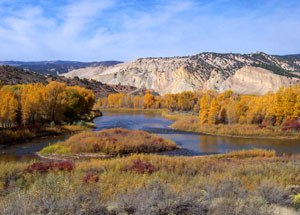 The decision comes after CPW has been monitoring unnatural stream flows, sparse aquatic habitat, and low nutrient content all contributed to the decline of the water. CPW said that stretch of the river hasn’t met the
The decision comes after CPW has been monitoring unnatural stream flows, sparse aquatic habitat, and low nutrient content all contributed to the decline of the water. CPW said that stretch of the river hasn’t met the 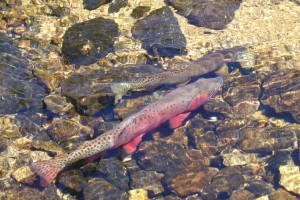
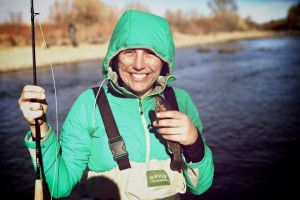
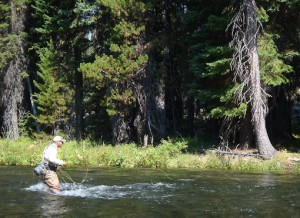
 The report focuses on the great work that sportsmen and women did to help these places become protected from land development under the Antiquities Act of 1906. These newest monuments will be protected due to their historic or scientific interest. All of these area protect the habitat and populations of wild animals, have easy public access, and the management of fish and wildlife populations will be retained by state fish and wildlife agencies.
The report focuses on the great work that sportsmen and women did to help these places become protected from land development under the Antiquities Act of 1906. These newest monuments will be protected due to their historic or scientific interest. All of these area protect the habitat and populations of wild animals, have easy public access, and the management of fish and wildlife populations will be retained by state fish and wildlife agencies. Merging the arts with adventure,
Merging the arts with adventure,  New to to Fishpond's 2016 line, the
New to to Fishpond's 2016 line, the 
 Thanks to the folks at
Thanks to the folks at 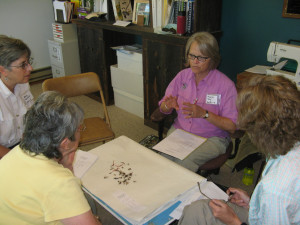
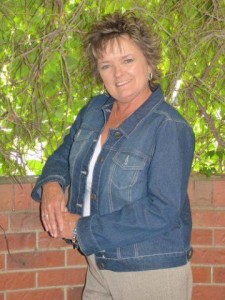 Beckie has been involved with local TU chapter activities in Montrose & Telluride the last 8 years since returning from Ghana - coordinating banquets, fund-raiser events, etc. Her and Marshall have been traveling across the country attending National TU regional and annual meetings learning all about the great work TU has going on. Her biggest impact in Colorado has been her involvement in the CTU Rendezvous by coordinating the Women's Weekend. She not only initiated this program but has been the key to its continued expansion. The ladies that connect with Beckie always leave wanting more! Come meet Beckie this year at our Rendezvous at Hotel Colorado.
Beckie has been involved with local TU chapter activities in Montrose & Telluride the last 8 years since returning from Ghana - coordinating banquets, fund-raiser events, etc. Her and Marshall have been traveling across the country attending National TU regional and annual meetings learning all about the great work TU has going on. Her biggest impact in Colorado has been her involvement in the CTU Rendezvous by coordinating the Women's Weekend. She not only initiated this program but has been the key to its continued expansion. The ladies that connect with Beckie always leave wanting more! Come meet Beckie this year at our Rendezvous at Hotel Colorado.

